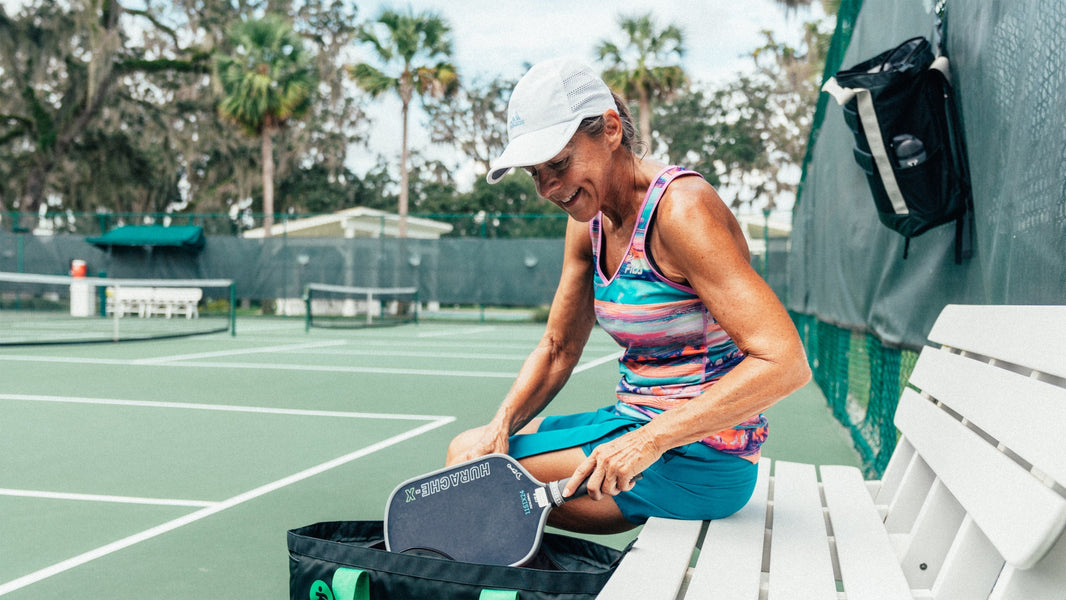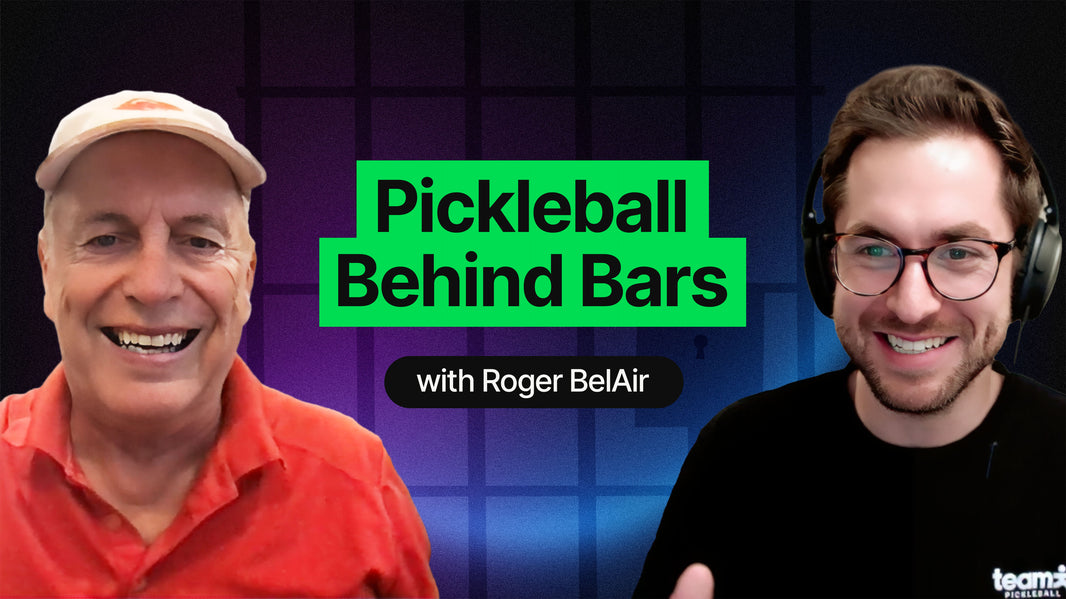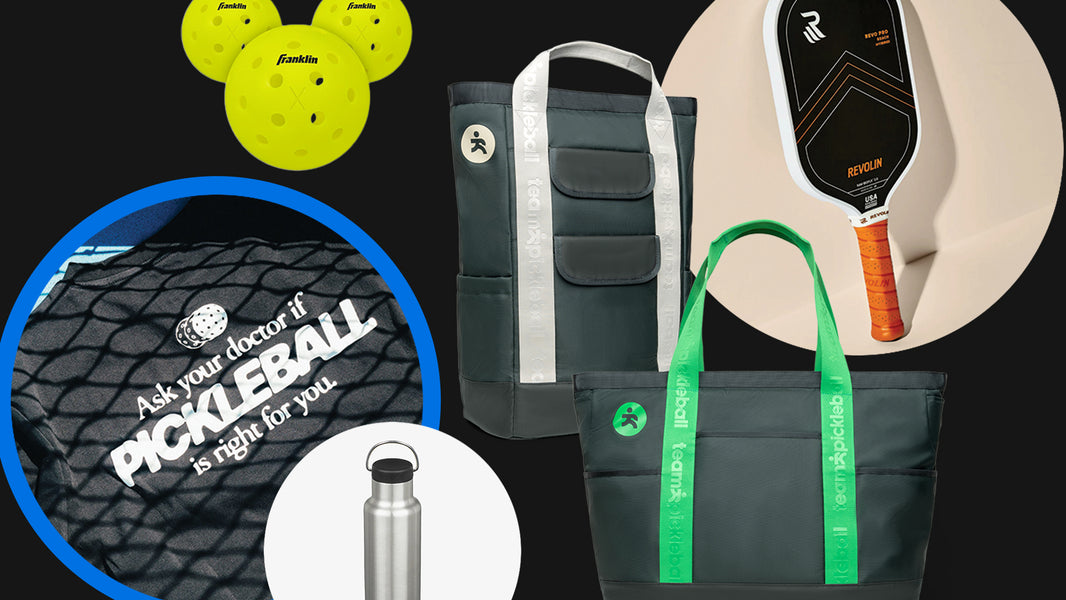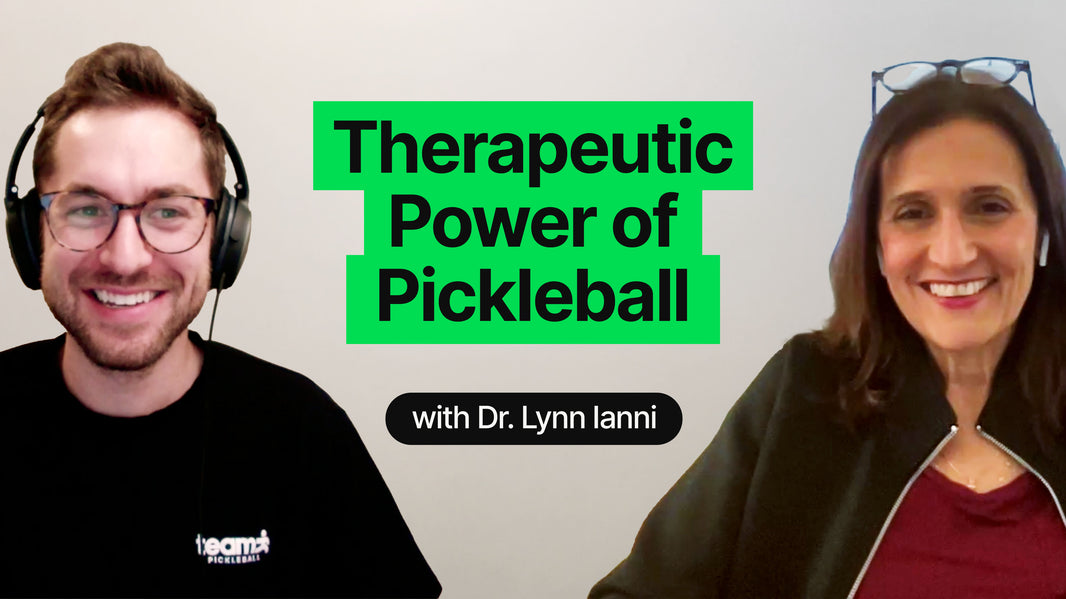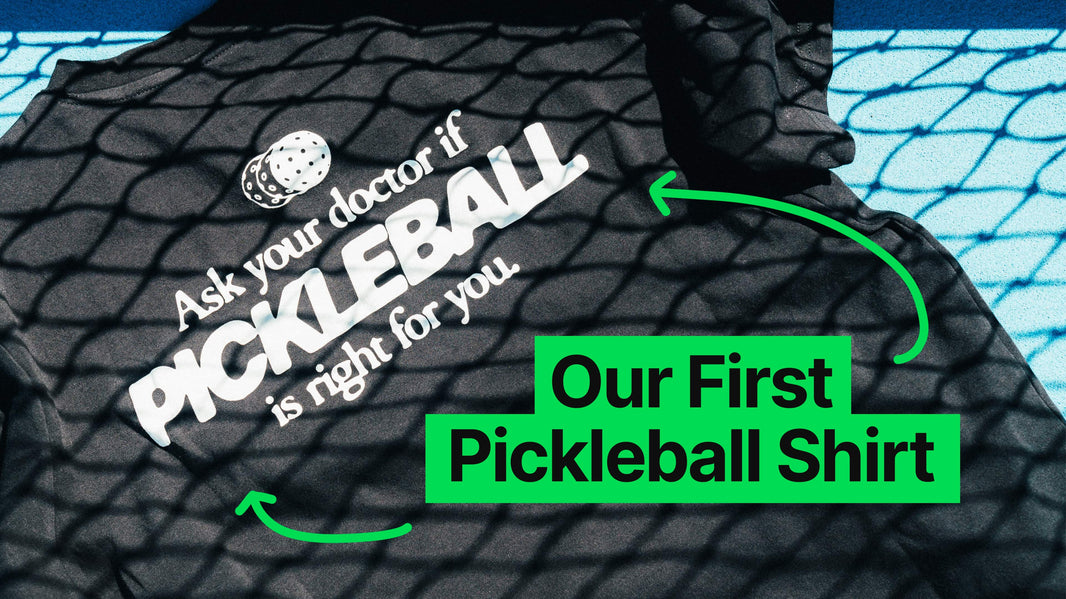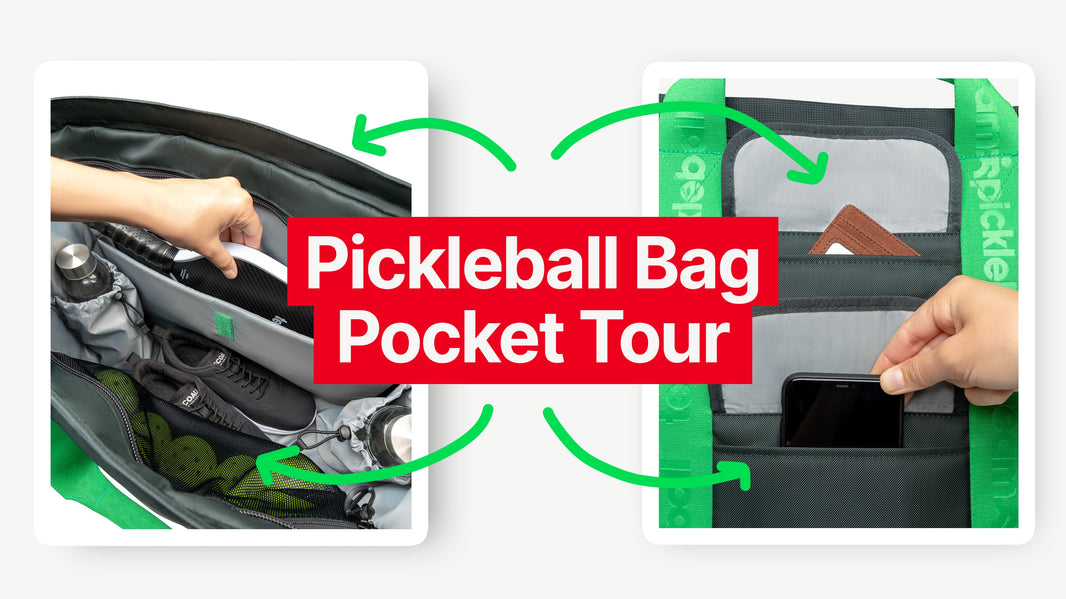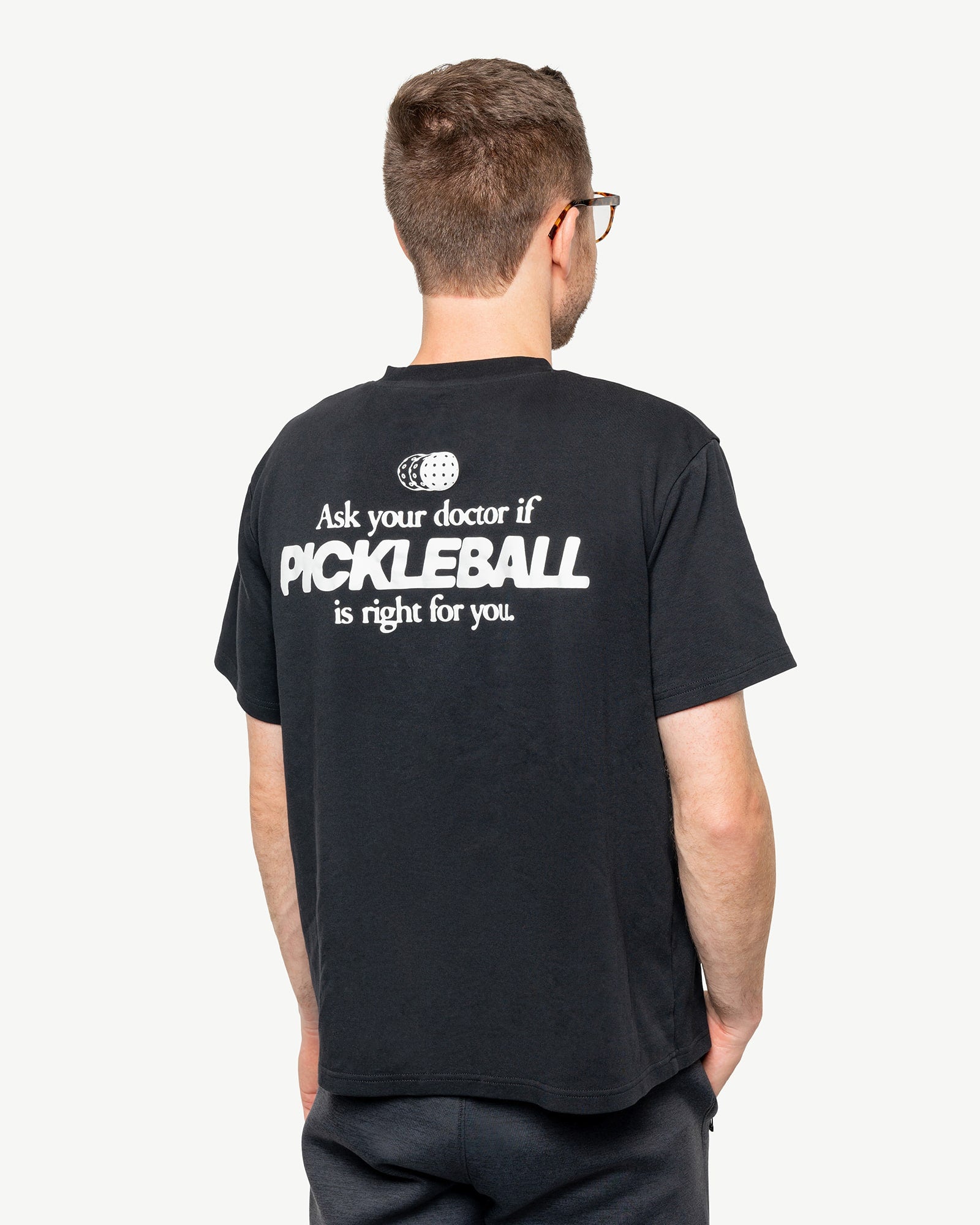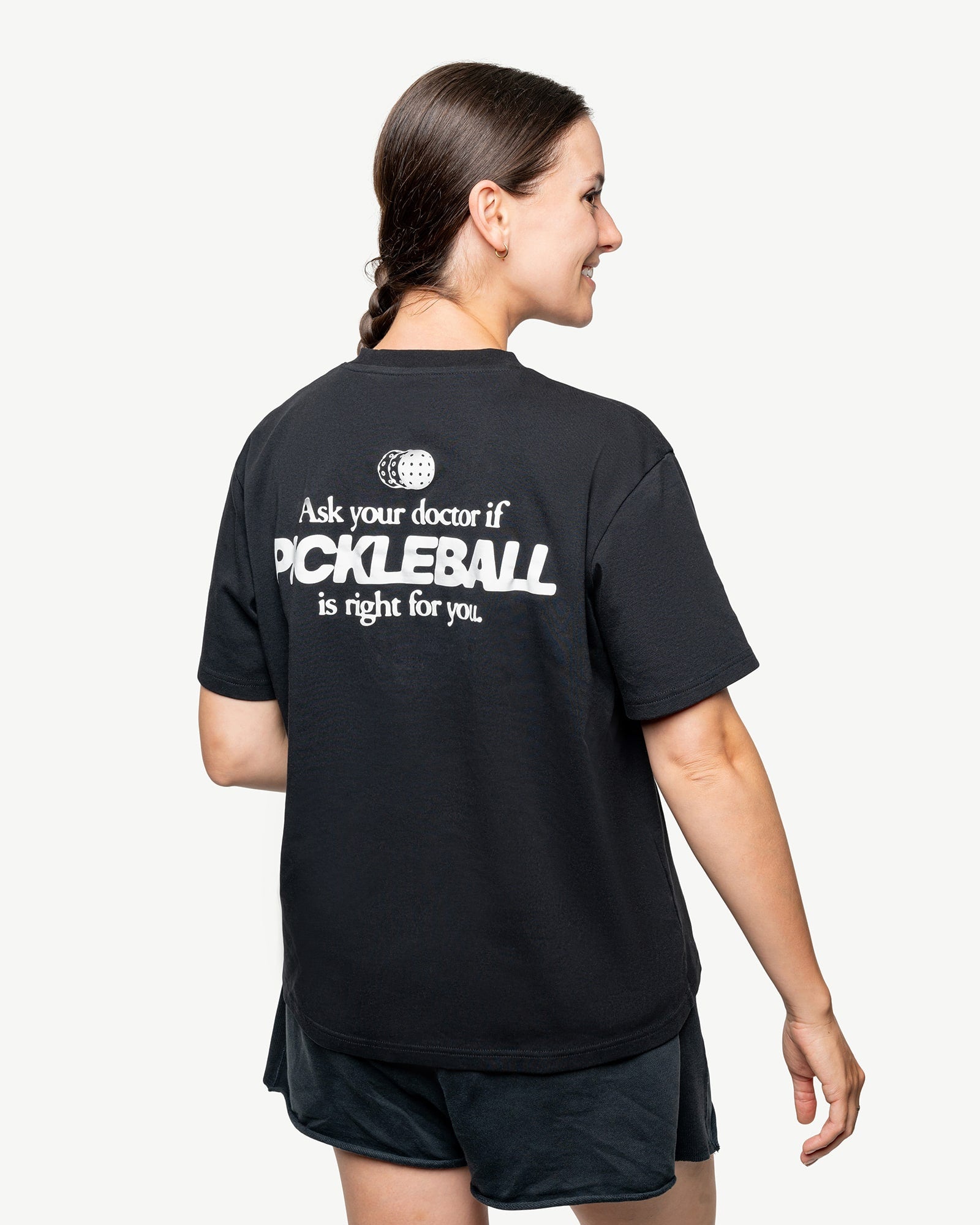Pickleball isn’t just a sport; it can also be used to foster mental wellness, community connection, and joy. In a recent conversation with psychotherapist Dr. Lynn Ianni, we explored the mental health benefits of pickleball, including how this rapidly growing sport helps people connect, stay active, and find peace in the present.
Pickleball and Wellness: More Than Just a Game
Pickleball’s popularity is soaring across age groups, and it’s easy to see why. As Blake shares, “It’s a sport you can get into without any intense preparation. Within five minutes, someone new to pickleball can have a great time.” This simplicity makes it accessible to anyone looking for an enjoyable activity that doesn’t require rigorous training or previous experience.
Dr. Ianni emphasizes how the sport’s non-competitive nature supports mental health, saying, “There are so many benefits on so many levels to just participating in a sport and to being social and to being more recreationally based than competitive because that lends itself to feeling good about the experience instead of only good if the experience ends in a win.”
The Mental Health Benefits of Play
Research has shown that recreational sports reduce stress and improve mood. Pickleball, with its mix of fun and friendly competition, is especially effective at promoting mental wellness. Pickleball is a sport that can get really competitive and intense if you want it to, but at the core of the sport, it’s all about having a good time and engaging in that sense of play.
Dr. Ianni highlights how playing recreational sports like pickleball allows players to stay focused in the moment, which can significantly boost mental health. “If you think positively about yourself and others, you feel good. When you feel good, your physiology changes…you have a much better balance in your biochemical processes in your brain,” she says. By keeping players present and positive, pickleball creates a loop of beneficial thoughts and feelings that enhance physical and mental well-being. Discover more about how therapy and pickleball enhance mental wellness for players of all skill levels.
Building a Community: A Key to Longevity
One unique aspect of pickleball is its multi-generational community. People of all ages gather on the court, which creates a supportive social environment that promotes wellness across age groups.
Dr. Ianni reinforces the social importance of pickleball, noting, “One of the biggest factors in people getting depressed as they get older is that they’re isolated.” She goes on to explain how pickleball’s community aspect helps prevent isolation, a key factor in maintaining mental health as we age. In fact, studies have shown that racket sports like pickleball can improve quality of life and even extend it by up to ten years.
Mindfulness on the Court: Staying Present
Pickleball also promotes mindfulness, which can be transformative for mental health. Pickleball requires you to be alert and present while playing, which can often help your mind take a break from the stresses of the world around you. This present-moment focus fosters a sense of mental clarity and calm, relieving stress and boosting mental well-being.
Dr. Ianni emphasizes the importance of mindfulness, saying, “The presence of mind that is required to just…stand there on a court and be like, Oh my gosh… I’m right here right now…amazingly beneficial for everyone at any like anywhere or doing anything.”
Accessible Wellness: Pickleball for Everyone
One of Pickleball’s greatest strengths is its accessibility. With minimal equipment and the availability of open courts, anyone can join. Blake notes, “You don’t need to have a club membership. You just need to show up…someone will probably lend you a paddle.” This affordability and openness make pickleball one of the most inclusive activities for people of all ages looking to improve their wellness.
Rediscovering Play: The Therapeutic Power of Letting Go
Dr. Ianni encourages players to embrace a mindset of self-improvement rather than competition in pickleball: “The only person you want to be better than is who you were the day before.” This approach allows players to enjoy the game as a therapeutic and joyful activity without the pressure of constant competition. Dr. Ianni adds, “If the frame is 'I want to improve,' all good. If the frame is 'I have to beat somebody else,' you’re going to set it up to feel bad at some point.”
This shift from performance to enjoyment fosters a healthier mindset that extends beyond the court.
Final Thoughts: A Holistic Approach to Wellness
As Dr. Ianni reflects, “Pickleball winds up feeling like a giant extended family where we’re all sharing something that we would never have been able to share before.” For anyone looking for a way to get active and possibly improve their mental wellness, pickleball offers the perfect combination of physical activity, social engagement, and mental health benefits, and it is worth giving it a try.
Connect with Dr. Lynn Ianni
If you’re interested in getting in touch with Dr. Ianni, she provides telehealth sessions in California and Washington. For more information, visit her website at drlynnianni.com.
Conclusion
Pickleball is more than just a sport; it can be a pathway to improving your mental health, building a stronger sense of community, and enhancing overall well-being. This sport’s accessibility, social nature, and focus on play make it a powerful tool for promoting a healthier, more connected life. To stay in top form, make sure to read our guide with The Pickleball Doctor on injury prevention. Embrace the joy of play and see how pickleball can enhance your mental and physical health.



